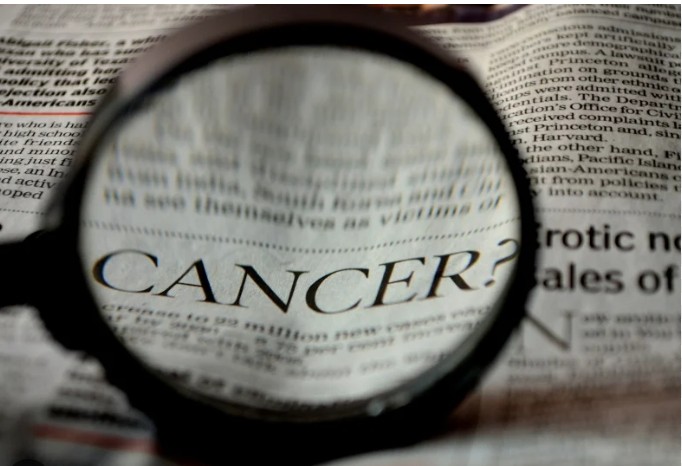Cancer has become an enormous business
The cancer industry has evolved into a colossal enterprise, boasting a staggering valuation of over $222 billion, with its exponential growth largely driven by an insatiable pursuit of profit, which often takes precedence over the welfare and well-being of patients. This multibillion-dollar market thrives on avarice, with many stakeholders prioritizing financial gains over the development and dissemination of effective treatments, thereby perpetuating a culture of exploitation. Furthermore, there appears to be a concerted and deliberate effort to suppress and conceal genuine cures and breakthroughs, ultimately culminating in prolonged and unnecessary suffering for the millions of individuals worldwide who are courageously battling this devastating disease.
The Food is Poisoned for Profit and Pharma Profits Off Illness
The food system as a whole plays a profoundly pivotal role in this intricate cycle, wherein the pervasive presence of processed foods has been unequivocally linked to an increased risk of developing poor health outcomes, thereby creating a veritable conduit to the onset of cancer. Rather than promoting optimal health and wellbeing, these ubiquitous products inadvertently foster an environment that is conducive to the development of disease, ultimately driving individuals towards a myriad of costly and often invasive treatments, as opposed to providing efficacious solutions that address the underlying causes of these afflictions.
Cancer is Symptom of Toxins in the Body
Cancer is not merely a malady, but rather a complex physiological response to the presence of toxic substances in the bloodstream, wherein the body’s natural defense mechanisms are triggered to counteract the harmful effects of these invaders. A tumour, in this context, can be perceived as a self-protective mechanism, a deliberate attempt by the body to encapsulate and isolate these noxious substances, thereby preventing them from causing further damage to surrounding tissues. However, when a biopsy is performed, it effectively compromises this protective barrier, releasing a plethora of toxins back into the system, which can have devastating consequences. Ultimately, this procedure does not provide a solution to the underlying problem, but rather exacerbates it, allowing the toxins to disseminate and potentially trigger a cascade of deleterious effects throughout the body.
How Big Pharma Controls Medical Schools
The utilization of radiotherapy as a treatment modality induces a profound shock to the bodily system, thereby diverting vital energy that would otherwise be allocated towards the natural healing process to instead target and dismantle the malignant tumour. Furthermore, the implementation of chemotherapy serves to exacerbate this situation, as it entails the introduction of toxic substances into the body, which can have a deleterious impact on the overall physiological equilibrium. This dual-pronged approach not only compromises the integrity of the immune system, rendering it increasingly vulnerable to potential threats, but also creates an environment in which the development of novel tumours can occur, thereby perpetuating a cycle of incessant treatment and recurrent illness.
Annually, a substantial number of cancer specialists, particularly those in academic positions, receive tens of millions of dollars in payments from pharmaceutical companies. Concurrently, these medical professionals are responsible for drafting guidelines that necessitate the utilization of the very same drugs they are being paid to promote, and subsequently prescribing them to patients who are desperately seeking unbiased medical opinions, only to be provided with biased recommendations instead. It has been reported that a staggering 85% of the individuals responsible for composing the National Comprehensive Cancer Network guidelines have accepted payments from pharmaceutical companies, while professional organizations are inundated with funds from these same corporations. The American Society of Clinical Oncology’s annual convention, ostensibly a gathering for the objective evaluation of scientific data, has devolved into a marketing spectacle for the pharmaceutical industry, with the organization itself being heavily influenced by the influx of pharmaceutical funds.
How Big Pharma Pays Doctors to Push Chemotherapy
The human body’s response to the presence of carcinogenic toxins in the bloodstream is to encapsulate them in a tumorous growth, essentially creating a containment vessel to isolate these harmful substances. However, when a biopsy is performed, this carefully constructed barrier is breached, releasing the toxic matter back into the bloodstream, thereby potentially exacerbating the underlying condition. Furthermore, radiotherapy can induce a state of systemic shock, diverting the body’s energy reserves away from the critical task of tumour degradation and towards crisis management, thus undermining the body’s natural defences. Meanwhile, chemotherapy, while intended to target malignant cells, ultimately proves to be a blunt instrument, poisoning the entire body and contaminating the bloodstream, which can trigger a perverse response, prompting the body to generate even more tumorous growths in a desperate bid for self-preservation.
Oncology is big business
The global cancer treatment market has been estimated to have reached a staggering valuation of approximately $158 billion in 2020, with projected growth expected to catapult this figure to a whopping $268 billion by 2026. These astounding numbers inevitably prompt critical inquiry into the glaring lack of effective cures, sparking intense debate and scrutiny. The harsh reality is that the cancer industry appears to be reaping substantial financial benefits from the plight of afflicted patients, with anticipated continued growth projected to propel the market to a staggering estimated value of $470 billion by 2032. As the medical sector faces mounting allegations of corruption, heightened awareness and outrage have been ignited, particularly in the aftermath of recent, high-profile events. It is imperative that we re-examine the prevailing narrative surrounding cancer, and consider the possibility that it may, in fact, be one of the most egregious deceptions of modern times, warranting a thorough and unflinching investigation into the underlying factors driving this multibillion-dollar industry.
As the 20th century drew to a close and the 21st century began, the field of oncology was marred by a plethora of unethical clinical trials, replete with poorly designed control arms, inadequate post-trial care, and egregious crossover practices, all of which served to enrich corporate coffers while impoverishing patients. It has been alleged that numerous cancer specialists have accepted remuneration from these companies, thereby perpetuating a narrative that prioritizes profits over people. The sheer extent of corruption and rot that pervades this system has become so deeply ingrained that it has become nearly impossible to recognize its inherent malignancy. Historians will undoubtedly regard this era as a dark chapter in the annals of medical history, one in which marginal medications were administered to terminally ill individuals, while governments levied taxes on impoverished citizens to subsidize these ineffective treatments. Meanwhile, doctors, beholden to corporate interests, have been complicit in promoting these products, even as the United States teeters on the brink of bankruptcy due to the staggering costs of inappropriate, harmful, and useless care. It is imperative that we acknowledge the gravity of this situation and recognize that awareness is the first step towards effecting meaningful change. The medical community has a profound responsibility to prioritize genuine healing and patient welfare over financial gain, and it is essential that we reexamine our approach to cancer treatment, demanding greater transparency and accountability from the individuals and corporations that wield significant influence over this industry. Ultimately, it is only through a concerted effort to reform this broken system that we can hope to create a more just and equitable healthcare landscape, one that prioritizes the well-being of patients above all else.
Written By Tatenda Belle Panashe



